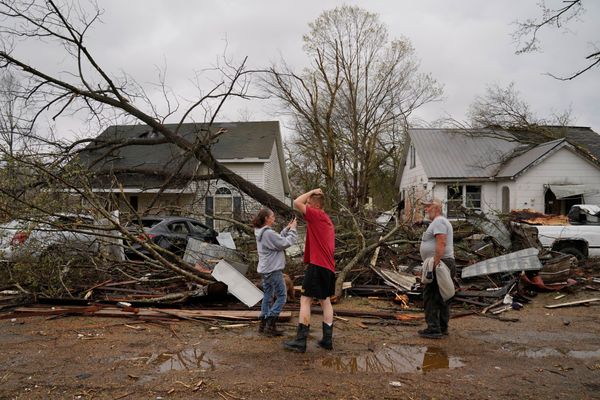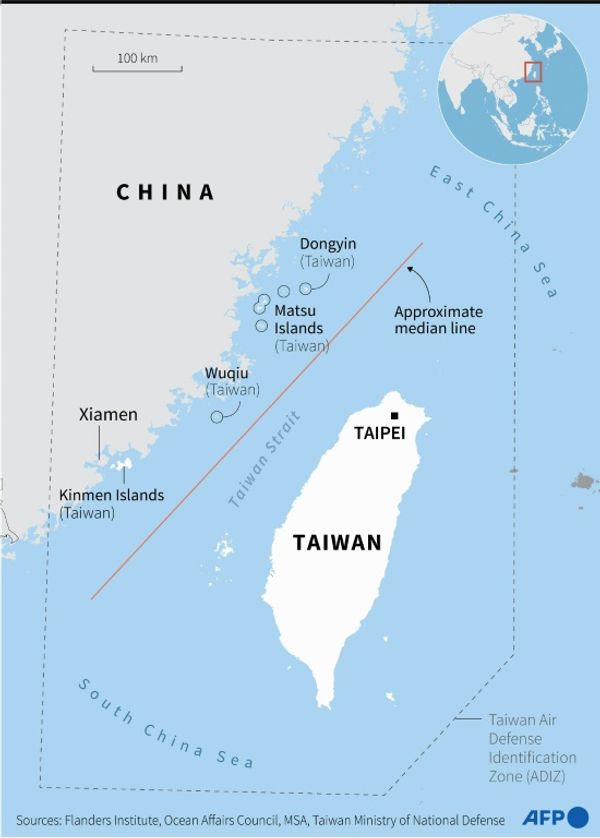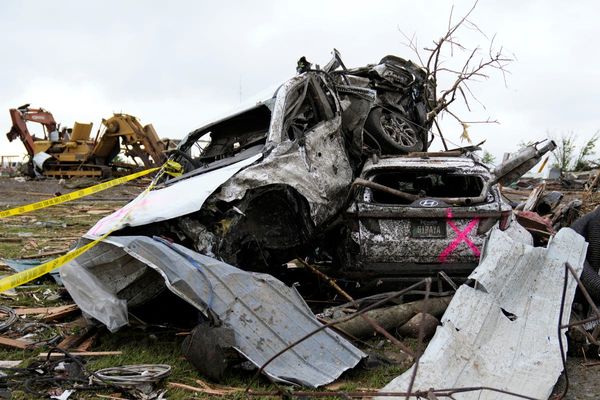
Is Byron Bay a tourist town or a town tourists want to visit?
That question was the subtext of two days of public hearings this week by the NSW Independent Planning Commission over a proposal to change the regulations around short-term rental accommodation.
Byron Shire Council has proposed to reduce the number of days short-term accommodation can be made available for rental in large parts of the shire from 180 to 90 days a year.
The council says the change is intended to reduce the housing stress gripping the town by reducing the financial incentive that favours short-term holiday letting, and pushing landlords to provide more long-term leases.
But not everyone is convinced it will happen and the policy has business-owners who rely on tourism worried. The hotly contested debate has become something of a battle for the soul of Byron Bay.
In December, the state government intervened to prevent the council from changing the regulations one day before it was due to vote. The hearings are taking place to canvass public sentiment on the issue as the commission prepares advice on the matter for the NSW minister for planning, Anthony Roberts.
Byron’s mayor, Michael Lyon, says with nearly 40% of rental stock used for short-term rental, it’s an existential debate.
“Nowhere else in the world has that kind of concentration of short-term letting as proportion of total rental stock. We want to break the investment model by limiting the number of nights you can holiday let, putting downward pressure on prices.”
Liz Friend, who organised a petition to support the cap on short-term rentals, told the commission that “commercialisation” of the town has gutted it of its authenticity – a key to its attraction for visitors.
“Many out-of-town and local investors have purchased multiple properties and have converted them to short-term rentals,” she said. “Meanwhile, permanent renters have been forced out, resulting in a serious crisis that has led to homelessness and displacement across the entire northern rivers.

“The commercialisation of this area has actually driven out the artisans, musicians and alternative lifestylers who had a sense of authenticity, love and vision for the region.”
Housing stress is particularly acute in Byron, where rents have increased by 37% since 2019 and the vacancy rate sits at 1.9% as of January 2023.
Sarah Ndiaye, Byron’s deputy mayor and the first to appear at the hearings, said some residents have had to live in more houses “than they have birthday candles on their cake”.
“Housing insecurity in this area is diabolical for a lot of people, especially for people with low incomes, of which there are many. We have stories of women and children sleeping in cars as they can’t find places to live. Business can’t attract or retain staff.”
Ndiaye told the commission as of April 2022 up to 80% of businesses did not have sufficient staff.
In her presentation to the commission, Byron resident Belinda Lewis said one of her friends has to listen to artificial sounds of the ocean to find peace because, with so many short-term rentals surrounding her home, “there is constant noise, day and night”.
“We are constantly fearful, and dread coming home, especially on a Friday. Our homes are no longer a safe space.”
Any complaints about the noise or disturbances are met with “aggression and abuse”, Lewis said, and that the NSW code of Conduct is rarely heeded.

On the other side of the coin is Reid Campbell, whose parents started Byron Bay Holiday Hire 38 years ago. Campbell told the commission short-term rentals have allowed him to support his family, employ locals and give back to other businesses in the region.
“With the proposed changes, we could lose up to 65% of our business overnight. It would make it impossible to employ our staff all-year round – they would immediately become seasonal or holiday period workers,” he said.
“Almost everyone I talk to is connected or relies heavily on the [short-term rental accommodation] industry to provide for their families – cleaners, plumbers, landscapers, handymen, builders, the list is endless.”
Nic Durkin, who runs the handyman business CND Property Services, said he believed his business would “collapse” if the policy was approved.
“Permanent rentals and owner-occupied homes generally don’t have the same need for immediate service or presentation to the standard necessary for holiday letting.
“I’m certain that any caps imposed or restrictions on holiday letting would seriously affect the viability of my business.”
A representative of Airbnb, Steven Berveling, also appeared at the hearings, saying the company was opposed to the cap.
“The imposition of a 90-day cap will significantly reduce the employment in the tourism and hospitality sector in Byron local government area, and will have a questionable impact on the rental market, especially for affordable housing.”
The representatives of short-term rental associations agreed, arguing that reduced holiday letting wouldn’t lead to increased long-term rental.
But the mayor, Lyons, believes it will have an impact, with a council survey showing that 35% of homeowners likely to be affected by the cap would shift from short-term to long-term rental.
“No policy is perfect, but 35% is a fantastic result. Even a small number of properties returning to the market would help. It would protect our residential areas, at least until we can increase supply.”
A spokesperson said the NSW Department of Planning and Environment was committed to working with Byron Shire “to achieve better housing supply and affordability outcomes”, and it would consider the advice from the commission before making a decision on the proposal.







